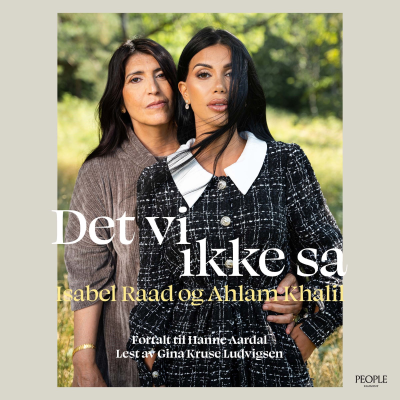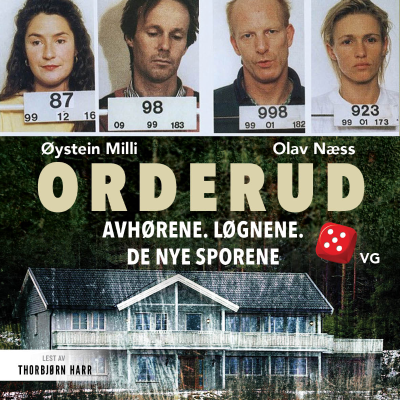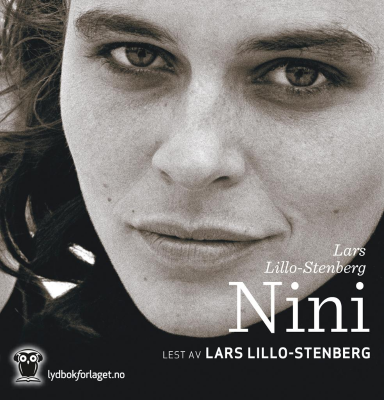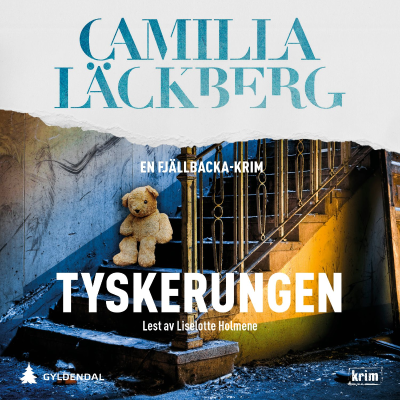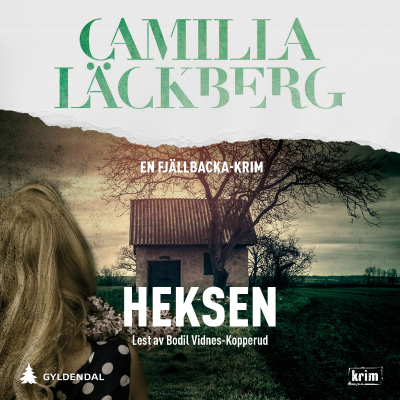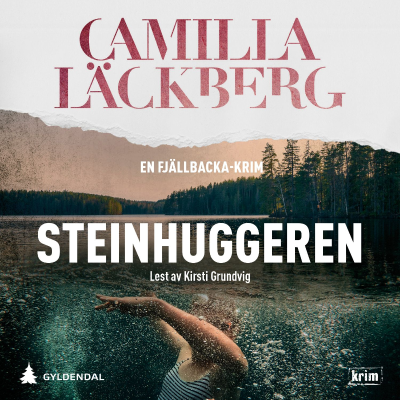
Planet Nude
Podkast av Planet Nude
Prøv gratis i 14 dager
99 kr / Måned etter prøveperioden.Avslutt når som helst.

Mer enn 1 million lyttere
Du vil elske Podimo, og du er ikke alene
Rated 4.7 in the App Store
Les mer Planet Nude
A podcast exploring nudity in history, culture, politics, and art. A new way to explore the stories we share on Planet Nude. www.planetnude.co
Alle episoder
159 EpisoderThe city of Rostock, Germany, has just implemented a compulsory nudity rule at designated nude beaches in the seaside districts of Warnemünde and Markgrafenheide. This local ordinance mandates that visitors to these naturist-only zones, encompassing 37 beach sections along a 19 km stretch of coastline, must be entirely unclothed. Swimsuits, bikinis, and any form of clothing are prohibited in these areas. If you’re caught clothed on one of these beaches, you may be asked by authorities to strip down or vacate. To be perfectly clear, this regulation applies only to Rostock’s official FKK beaches and does not apply nationally. The city’s beaches are now categorized into three distinct zones: naturist-only, mixed-use, and textile-only, ensuring that visitors can choose areas that align with their comfort levels. Enforcement measures The decision to enforce this ban arose from numerous complaints by naturists who felt uncomfortable due to the presence of clothed individuals in designated nude areas. Incidents involving clothed visitors allegedly gawking, taking photos, or otherwise disrupting the nude-friendly environment were reported. Rostock officials noted that many naturists felt their privacy was being compromised, prompting the city to adopt stricter guidelines. Rostock has a longstanding tradition of FKK culture, particularly in former East Germany, where social nudism was widely practiced. City officials believe that this rule protects the integrity of dedicated naturist spaces and ensures that naturists can feel at ease. Additionally, the increasing prevalence of smartphones has raised concerns about potential privacy violations, further justifying the need for clearer regulations. Beach wardens and local authorities will oversee compliance with the new rule. These officials have the authority to request that clothed individuals either disrobe or leave the FKK zones. If someone refuses to comply, they may be issued a Platzverweis (order to vacate the area). Notably, no fines are planned; enforcement will focus on resolving conflicts rather than imposing penalties. According to reports, wardens will patrol the nude beaches on foot or by beach buggy, but they themselves will remain clothed. The rule does not apply to passersby who are not staying on the beach—for example, someone briefly walking along the shoreline. Rostock has also designated textile-only zones to accommodate all preferences, ensuring that those who prefer to wear swimwear have separate spaces. Public reaction and controversy Locally, the rule has been welcomed by naturists and city officials, who view it as a reinforcement of proper etiquette and a deterrent against clothed onlookers. The Rostock city council broadly supported the measure, emphasizing it as a practical response to user complaints. However, international reactions have been mixed. Media coverage highlighted the unusual nature of the rule, as most laws regulate nudity by requiring clothing—this one does the opposite. Some headlines humorously framed it as a crackdown on “half-hearted naturism.” Critics argue that the rule might deter newcomers who are curious about naturism but hesitant to go fully nude. However, no major protests or legal challenges have emerged, and officials stress that common sense will guide enforcement. Germany’s approach is unique. While the country has a strong FKK tradition, most of its nude beaches have historically been clothing-optional, much like those in other nudist-friendly nations. Even in places with long-established naturist cultures, mandatory nudity remains rare. France, home to its famous plages naturistes, generally allows swimwear even in designated nudist areas. Some beaches, like Port Leucate, post signs explicitly stating “le port du maillot de bain est interdit” (swimsuits forbidden), but enforcement is largely social rather than legal, relying on peer expectations rather than official action. Elsewhere, no such mandates exist, at least that I can find. Spain, Canada, the U.S., and the U.K. all have well-known nude beaches, but they remain clothing-optional, without any formal requirement for nudity. Rostock’s decision stands apart—by legally enforcing a nude-only policy at its designated FKK beaches, the city has taken a rare step in formalizing naturist etiquette through law rather than tradition. In doing so, it extends the principle long observed in German spas—where nudity is required for hygiene—into the open, ensuring that its historic naturist beaches remain truly clothing-free. A model for naturist beaches Rostock’s enforcement of a nude-only rule is a significant milestone for preserving dedicated naturist spaces. The growing issue of textile encroachment on nude beaches has been a concern for years, with many naturists feeling uncomfortable in what should be their own spaces. This rule provides a clear solution: if a beach is designated as naturist, then it should be exclusively for naturists. By eliminating ambiguity, it strengthens naturist culture and protects privacy from unwanted intrusions. The rule now also provides a precedent. Naturist groups worldwide might consider advocating for similar policies in areas where textile beachgoers disrupt naturist spaces. 🪐 This is a public episode. If you'd like to discuss this with other subscribers or get access to bonus episodes, visit www.planetnude.co/subscribe [https://www.planetnude.co/subscribe?utm_medium=podcast&utm_campaign=CTA_2]
The Substance is a mad, mad film. At times it’s more like a particularly unhinged episode of Black Mirror or the Twilight Zone than it is a movie, and it revels in violent and grotesque body horror. It's not subtle, and often feels like it’s bludgeoning you with what it wants to say. It is absolutely the wildest movie that I saw in 2024, nothing else even comes close. It is certainly not for the faint of heart, especially those who hate needles. But why am I reviewing it here? Because, while it’s a pretty simple, gruesome movie, all things considered, its messages should be strikingly familiar to the naturist community. Read the full article at www(dot)planetnude(dot)co This is a public episode. If you'd like to discuss this with other subscribers or get access to bonus episodes, visit www.planetnude.co/subscribe [https://www.planetnude.co/subscribe?utm_medium=podcast&utm_campaign=CTA_2]
Planet Nude was suspended from Facebook Saturday, after months of escalated warnings and content removals. Each time, I appealed the takedowns, and each time, my appeals were repeatedly denied with little explanation. The content in question? Mostly links to our articles and webcomics—material that follows the general guidelines of Substack and other publishing platforms but, apparently, does not sit well with Facebook’s algorithmic enforcers.Read the full article at www(dot)planetnude(dot)co/p/they-dont-want-us-here This is a public episode. If you'd like to discuss this with other subscribers or get access to bonus episodes, visit www.planetnude.co/subscribe [https://www.planetnude.co/subscribe?utm_medium=podcast&utm_campaign=CTA_2]
Social media’s censorship of naturist content continues to stifle body-positive messaging and community building. In this article by Evan Nicks, the case is made for returning to newsletters as the foundation of the naturist movement. Direct, sustainable, and free from algorithmic barriers, newsletters can help organizations reclaim their voice and grow authentic connections. Read the original article at www(dot)planetnude(dot)co This is a public episode. If you'd like to discuss this with other subscribers or get access to bonus episodes, visit www.planetnude.co/subscribe [https://www.planetnude.co/subscribe?utm_medium=podcast&utm_campaign=CTA_2]
In a welcome win for the naturist community, the Oregon Parks and Recreation Department (OPRD) has withdrawn a proposed rule change that could have made it easier to alter the well-defined boundaries of the clothing-optional area at Rooster Rock State Park. The decision came during an online public hearing held on January 15, 2025, which saw robust participation from advocates and concerned citizens. Read the original article at www(dot)planetnude(dot)co This is a public episode. If you'd like to discuss this with other subscribers or get access to bonus episodes, visit www.planetnude.co/subscribe [https://www.planetnude.co/subscribe?utm_medium=podcast&utm_campaign=CTA_2]

Rated 4.7 in the App Store
Prøv gratis i 14 dager
99 kr / Måned etter prøveperioden.Avslutt når som helst.
Eksklusive podkaster
Uten reklame
Gratis podkaster
Lydbøker
20 timer i måneden
















